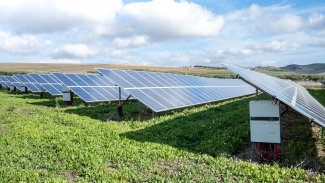Public Procurement as a Market and Financing Solution for Small and Medium Local Timber Producers and Processors in Tanzania
In Tanzania, and across much of Africa, the potential impact of public procurement on sustainable growth of the local timber industry is not well understood. This is due to limited awareness of the local timber industry by government agencies responsible for public procurement, and vice versa. As a result, this existing gap hinders the opportunity for timber-based Small and Medium Enterprises (SMEs) to access the public procurement market to grow sustainably, meet their operational costs, develop effective business skills, or purchase new technology for improved productivity.
An Econometric Analysis of Maize Farmer’s Choice of Land Ownership System: Evidence Using Panel Data from Tanzania
This paper determines the socioeconomic and physical characteristics that influence maize farmer’s choice of land ownership systems in Tanzania, i.e., owned, sharecropped, and rented title land. The paper uses the Tanzania National Panel Survey (TZNPS) data basing on 2,073 observations comprising of a sample size of 691 households in three consecutive waves 2008/2009, 2010/2011, and 2012/2013.
Exploring consistency between stated and revealed preferences for the plastic bag ban policy in Chile
This paper exploits individual-level data before the implementation of a national policy to understand the factors driving avoidance of plastic consumption and explore potential inconsistencies between revealed and stated preferences for a plastic bag ban policy. We estimate a bivariate ordered probit model that allows us to account for a potential correlation between these types of preferences. The data reveals that while 71% of respondents take a reusable bag for shopping, only 58% of the sample state to strongly agree with prohibiting plastic bags.
There is no economic case for new coal plants in India
India is the world’s third-largest emitter of CO2 and coal-fired power plants contribute approximately half of India’s CO2 emissions. Indian government policies assume a significant expansion of coal-fired power in India over the next two decades. This paper compares the costs of coal and renewable power, including quantifiable domestic external costs, in 2018 as well as projections for 2025. Our estimate for the environmental cost of coal is 2.4 US ¢/KWh (1.64 Rs.KWh) in the financial year 2018–19.
There is no economic case for more coal power plants in India
EfD researchers E. Somanathan and Shoibal Chakravarty argue in a study that backing the coal plants expansion policy is flawed . They outline the private and external costs of electricity from coal
Role of banking sector performance in renewable energy consumption
This study highlights the importance of a well-functioning bank sector to achieve the investment in renewable energy needed to meet future energy demand and simultaneously decrease CO2 emissions.
Unlocking climate finance potential and policy barriers—A case of renewable energy and energy efficiency in Sub-Saharan Africa
Sub-Saharan African is in a unique position to reap the socio-economic and environmental benefits of renewable resources, and the energy efficiency practices as the demand for energy in the continent grows. Assessment of the financing potential and the related obstacles for the financing deployment of renewable energy and energy efficiency sectors mapping will be a step forward to help in mobilizing the financial flows into sectors.
Pagination
- Previous page
- Page 25
- Next page



